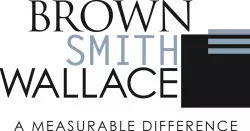Note to readers: Efforts are continuing in Washington to repeal and replace the Affordable Care Act. In early May, the House of Representatives passed a revised version of its replacement, the American Health Care Act. As of this writing, the bill is under consideration in the Senate. Please bear this in mind as you read the article below, and consult your benefits advisor for the latest developments.
In late February, the Centers for Medicare and Medicaid Services (CMS) issued a bulletin announcing another extension of an important transition policy. The policy allows states to permit insurers in the individual and small group markets to renew health insurance policies they would otherwise have to cancel because of noncompliance with certain insurance market reforms under the Affordable Care Act (ACA). The bulletin generally continues previous extensions announced in 2014 and 2016 of the transition policy first announced in 2013.
Implementation options
Under this latest guidance, states may permit insurers that have continually renewed eligible nongrandfathered individual and small group policies since January 1, 2014, to again renew such coverage for a policy year beginning on or before October 1, 2018. However, the policies may not extend past December 31, 2018.
States may elect to extend the transition policy for shorter periods and can apply it to just the individual market, just the small group market or both. The CMS will work with insurers and states to implement this policy, including options such as allowing policy years that are shorter than 12 months (but not longer) or early renewals with a January 1, 2018, start date.
Listed reforms
Any policies renewed under this transition policy won't be considered out of compliance with the statutory reforms listed in the guidance, which are the same reforms listed in the prior guidance. For individual and small group policies, they include:
- Premium rating rules,
- Guaranteed availability and renewability, and
- The requirement to provide essential health benefits.
For individual policies only, the list also includes prohibitions on pre-existing condition exclusions for adults and discrimination based on a health factor. (Small group policies covered by the transition policy must comply with these two reforms.)
Insurers can choose to adopt some or all of the reforms in their renewed policies. Those that opt to renew coverage under this extended transition policy, however, must still provide an annual notice of the right to retain existing coverage, using one of the two versions attached to the bulletin.
A continuation
Previous guidance indicated that transitional policies satisfy the ACA's individual mandate requirement to maintain minimum essential coverage (exempting covered individuals from individual shared responsibility penalties). The bulletin doesn't address this issue so, presumably, the guidance continues to apply. Although the bulletin represents a continuation of past policy, it takes on additional significance this year in light of potential changes to — or even the repeal and replacement of — the ACA.
Health insurance market stabilization regs now final
Regulations issued by the Department of Health and Human Services (HHS) to stabilize the individual and small group health insurance markets are now final. The provisions remain largely as originally proposed in February and are generally effective as of June 19, 2017. Here are a few highlights:
Guaranteed availability. The HHS has adopted a previously proposed change to its interpretation of guaranteed availability that permits insurers to refuse to enroll individuals owing past-due premiums. This interpretation applies both inside and outside of Health Insurance Marketplaces (also known as "exchanges") in the individual, small group and large group markets and during applicable open enrollment or special enrollment periods. Because of "operational limitations," however, it doesn't apply to the Small Business Health Options Program.
Annual enrollment period. The annual open enrollment period for obtaining coverage from a Health Insurance Marketplace for the 2018 plan year is shortened. It will begin on November 1, 2017, and end on December 15, 2017, rather than January 31, 2018, as previously announced.
Special enrollment periods. Responding to insurer concerns about potential misuse and abuse of special enrollment periods, the regulations require all individuals seeking special enrollment in federally facilitated Marketplaces and state-based Marketplaces using the federal platform to submit documentation of eligibility as part of pre-enrollment verification. Additional changes include significantly limiting the "exceptional circumstances" special enrollment period.
If you have questions about the final regs, please contact Ron Present, Partner and Health Care Industry Group Leader, at rpresent@bswllc.com or 314.983.1358.
The content of this article is intended to provide a general guide to the subject matter. Specialist advice should be sought about your specific circumstances.

